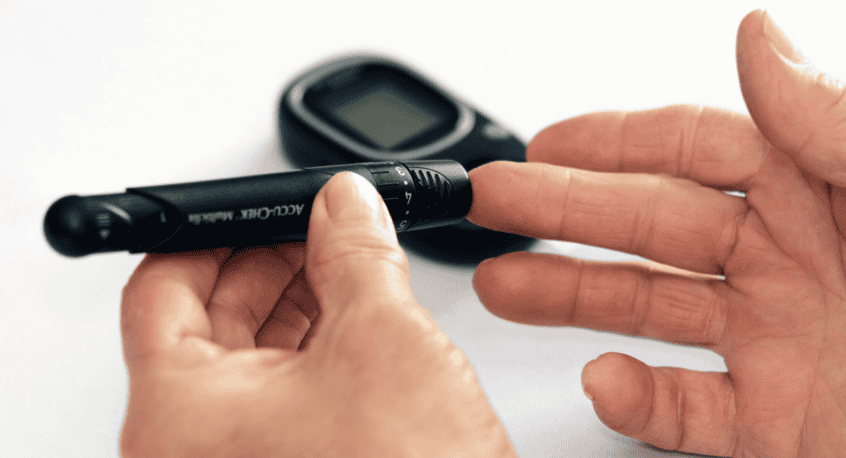Understanding the Connection Between Diabetes and Hearing Loss

Diabetes is a medical condition that affects millions of Americans. It’s also a risk factor for a range of other health conditions like heart disease, kidney problems, and nerve damage.
But did you know there’s also a link between diabetes and hearing? Emerging research suggests a strong link between diabetes and hearing loss, making it all the more crucial for individuals with diabetes to manage diabetes and take proactive steps to protect their hearing health.
The Prevalence of Diabetes and Hearing Loss
Diabetes affects a significant portion of the population, with type 2 diabetes accounting for the vast majority of cases. Hearing loss is one of the most common sensory impairments, especially among older adults. This means that many people are likely to have both diabetes and hearing loss.
The Connection Between Diabetes and Hearing
Research shows that people with diabetes are far more likely to suffer from hearing loss than those without diabetes. While the exact mechanism behind this relationship is not yet fully understood, several theories aim to explain how diabetes may impact auditory health.
High Blood Glucose Levels and Blood Vessel Damage
Diabetes is characterized by elevated levels of glucose in the blood, which over time can cause damage to small blood vessels and nerves throughout the body. The inner ear is no exception. The ear depends on a rich supply of blood for nutrient and oxygen delivery to the sensitive hair cells that are responsible for hearing. Compromised blood vessels can impact this process, leading to hearing impairment.
Diabetic Neuropathy
Diabetic neuropathy, a form of nerve damage caused by diabetes, is best known for affecting lower limbs, but it may similarly affect nerves in the auditory path, potentially leading to hearing loss. The nerves in the ear might become damaged in much the same way as other nerves in the body, thus disrupting the transmission of sound signals.
Inflammation
Chronic inflammation is another hallmark of diabetes and is a known risk factor for many of its complications. Some experts speculate that inflammation could play a role in causing auditory damage, though more research is needed to understand this connection.
Signs and Symptoms of Hearing Loss
Recognizing the symptoms of hearing loss is important, particularly for those managing diabetes. Some warning signs to look out for include:
- Difficulty understanding speech and following conversations, especially when there is background noise.
- Frequently asking others to speak more slowly, clearly, and loudly.
- Needing to turn up the volume on the television or radio.
- A sensation of muffled hearing.
- Avoiding some social settings due to difficulty hearing.
Early detection of hearing issues can lead to a quicker intervention, which may help slow down the progression of hearing loss.
The Impact of Untreated Hearing Loss
Ignoring the signs of hearing impairment can have a cascade of negative outcomes beyond the hearing challenges themselves. Difficulty in communication can lead to social withdrawal, depression, and reduced quality of life. Moreover, there is a growing body of research suggesting that untreated hearing loss might be associated with cognitive decline.
Managing Hearing Health and Diabetes
For individuals with diabetes, it’s important to monitor blood sugar levels and maintain overall health. In the same way, it’s important to monitor hearing health. Here are some steps to protect your hearing and your overall health:
Regular Hearing Tests
Including hearing evaluations as part of regular health screenings is essential, especially for those with diabetes. Treating hearing loss early provides the best chance for effective management and treatment.
Blood Sugar Control
Maintaining good blood sugar levels may help protect against many of the complications of diabetes, including hearing loss. Following your doctor’s advice on diet, exercise, and medication can go a long way in this respect.
Healthy Lifestyle
A healthy lifestyle that includes regular exercise and a balanced diet can contribute to improved blood circulation, which in turn can benefit your ears by ensuring a steady supply of nutrients to maintain their function.
Protect Your Ears
Reduce exposure to loud noises that can contribute to hearing damage. Wear hearing protection in noisy environments, and keep the volume down when using headphones.
Medication and Medical Follow-Ups
Some medications, particularly certain antibiotics and chemotherapy drugs, can be ototoxic or harmful to the inner ear. If you’re on any medication, discuss the potential side effects with your healthcare provider.
Book a Hearing Test
If you have diabetes or hearing loss, managing these conditions will help you boost your overall health and well-being. Contact us today to book a hearing test and find out more about your hearing needs.
